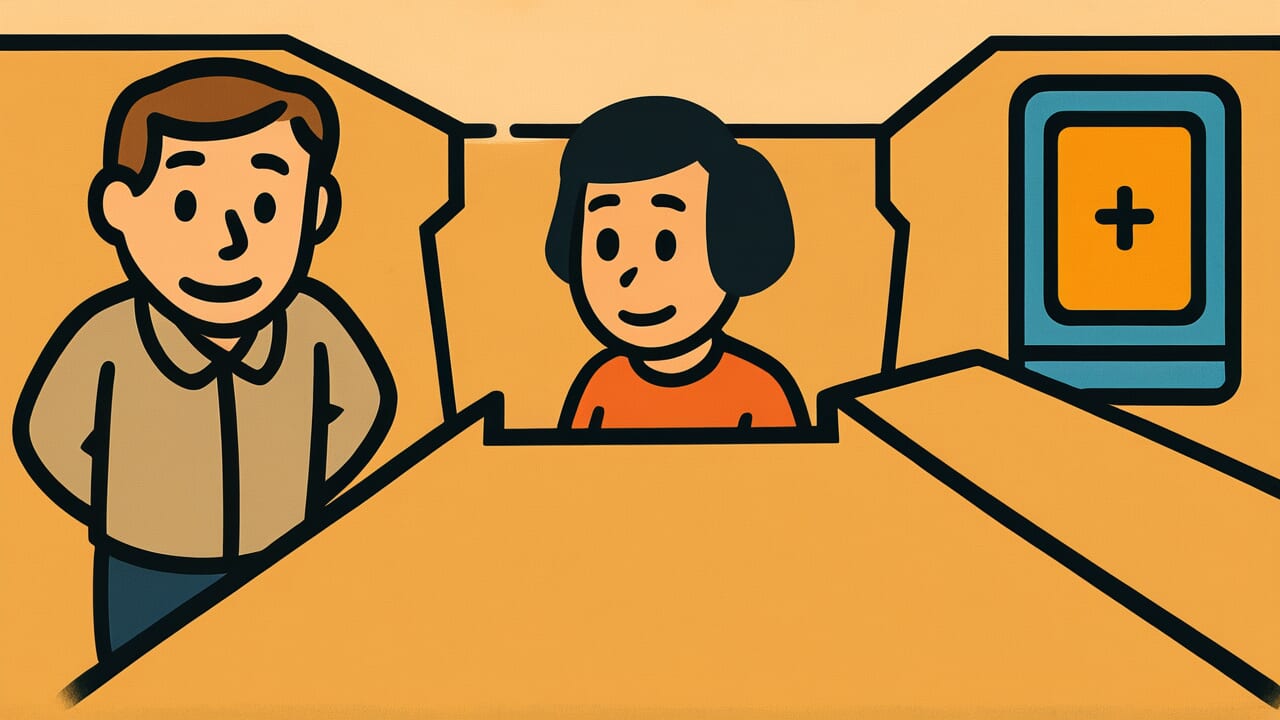How to Read “The farther away, the thinner it becomes”
Tōku nareba usuku naru
Meaning of “The farther away, the thinner it becomes”
“The farther away, the thinner it becomes” is a proverb that captures the essence of human relationships. It describes how emotional bonds gradually weaken when physical distance separates people.
Even the closest friends or lovers can drift apart after moving away. Relocations or job transfers create distance. Contact becomes less frequent. Shared daily experiences disappear. Eventually, emotional distance grows too.
People use this proverb when facing separation or reflecting on relationships that have faded. It carries a sense of “we were so close back then.” The saying acknowledges how powerfully distance affects our connections.
This truth remains relevant today. Even with social media keeping us connected, relationships still fade when we cannot meet in person. Human bonds require daily nurturing. Physical distance makes that nurturing difficult.
Origin and Etymology
The exact literary origin of “The farther away, the thinner it becomes” is unclear. However, its structure suggests it expresses a truth Japanese people have understood through experience for centuries.
The proverb directly links physical distance with emotional distance. “Farther away” describes spatial change. “Thinner” describes how feelings and relationships change. This simple pairing captures a fundamental truth about human connections.
Before the Edo period, travel in Japan was extremely limited. Once someone moved to a distant place, reunions became nearly impossible. Even exchanging letters was difficult. Physical distance directly translated to emotional distance in that environment.
People in that era deeply felt the pain of separation. They experienced firsthand how bonds fade with time. This social reality shaped their understanding of relationships.
The word “thinner” carries a visual image. It resembles how water dilutes a concentrated liquid. This metaphor compares relationships to liquid density. It shows the richness of Japanese sensory expression.
The sensitivity to view human bonds as something with varying thickness created this proverb. It treats invisible connections as something that can become diluted over time.
Usage Examples
- Since my overseas assignment, I’ve lost touch with old friends. I truly understand now that the farther away, the thinner it becomes.
- My college best friend and I were inseparable. But after taking jobs in different cities, we only exchange New Year’s cards now. The farther away, the thinner it becomes.
Universal Wisdom
“The farther away, the thinner it becomes” reveals a timeless truth. Maintaining relationships requires continuous contact. But why does distance weaken bonds? Because human connections fundamentally grow through shared time and experiences.
We deepen relationships through casual daily conversations. We bond by spending time together and breathing the same air. Memories of laughter, moments of encouragement, and accumulated ordinary days strengthen our invisible threads of connection.
But distance eliminates this sharing. We lose sight of each other’s daily lives. We cannot create new common memories together.
Human memory and emotion constantly need updating. Even the deepest bonds fade without new experiences to refresh them. They become memories of the past, losing their vivid colors.
This seems like a cold reality. Yet it actually proves that humans are beings who “live in the present.” We exist in the now, not the past.
This proverb has endured because so many people have experienced this bittersweet truth. The loneliness of parting. The anxiety of growing distant. The sense of loss when watching relationships actually fade.
Our ancestors captured the fragility of human relationships in these few words. And through that fragility, they also expressed how precious those connections are.
When AI Hears This
When transmitting information, the original signal always degrades. For example, when you tell someone a story you heard from a friend, small details drop out. The wording changes slightly. Information theory calls this “signal attenuation.”
What’s more interesting is how noise unrelated to the original information gets mixed in. This happens more with each transmission.
We can express this mechanism mathematically. The signal-to-noise ratio deteriorates exponentially with each transmission stage. If one transmission loses 10 percent of information, five transmissions leave only about 60 percent of the original. The lost portions fill with noise—interpretations and misunderstandings added at each stage.
The same principle operates in human relationships. When face-to-face meetings decrease, we stop receiving updated information about the other person. Old memories and imagination—essentially noise—replace current reality.
When remembering old friends, our self-created image often becomes stronger than their actual appearance. This happens because of information degradation and noise accumulation.
Cultural transmission works similarly. Original meanings thin across generations. New interpretations get added. This isn’t just degradation—it’s “creative transformation” where noise becomes incorporated as new information.
Thinning is actually the process of information adapting to its environment. What seems like loss is really evolution.
Lessons for Today
This proverb teaches us that maintaining important relationships requires conscious effort. We must abandon the illusion that “relationships naturally continue on their own.” It shows the importance of taking action to preserve bonds despite distance.
Modern technology has lowered the barriers of physical distance. Yet the principle of “the farther away, the thinner it becomes” still holds true. Why? Because what truly matters isn’t having communication tools. It’s the will to think of someone and reach out to them.
If you have people who matter to you, why not build relationships that can overcome distance? Make regular contact. Occasionally plan to meet. Show interest in their current life. Small accumulations become the power to overcome the obstacle of distance.
At the same time, this proverb teaches the importance of “cherishing people who are near you now.” Someday you might be separated. That’s exactly why you should carefully nurture your current relationships.
This forward-looking attitude enriches your life. Value this moment. Treasure the connections you have today. That’s the wisdom this ancient saying offers to modern people.



Comments